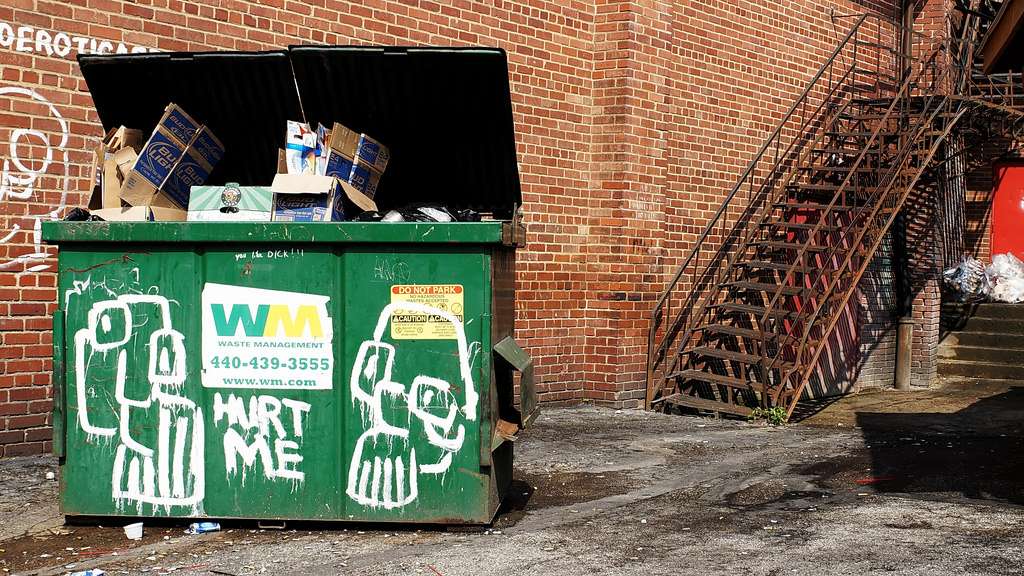Donating Food to the Needy Is Good, So Obviously Somebody (France) Will Make It Mandatory
Politicians ignore role in citizen poverty, instead mandate new obligations to food retailers.


Food retailers in France are now going to be required to—at the threat of possible jail time—donate any food they can't sell to charity. And if it's not fit for humans, it's to be sent out for animal feed. Furthermore, food retailers would be forbidden from deliberately spoiling the food it tosses away with bleach to stop scavengers. But there's more: The supermarkets have to do all the work. This has the companies affected upset at the new mandates. From The Guardian:
The Fédération du Commerce et de la Distribution, which represents big supermarkets, criticised the plan. "The law is wrong in both target and intent, given the big stores represent only 5% of food waste but have these new obligations," said Jacques Creyssel, head of the organisation. "They are already the pre-eminent food donors, with more than 4,500 stores having signed agreements with aid groups."
The logistics of the law must also not put an unfair burden on charities, with the unsold food given to them in a way that is ready to use, a parliamentary report has stipulated. It must not be up to charities to have to sift through the waste to set aside squashed fruit or food that had gone off. Supermarkets have said that charities must now also be properly equipped with fridges and trucks to be able to handle the food donations.
Altogether, only about 10 percent of food waste in France comes from the retail side. The largest chunk, 67 percent, is wasted by the consumer. But read a little more about the push for this law over at The Atlantic, and you can see that this is an emotional response from French politicians who were outraged at the idea of people going hungry, but have little interest in the root causes. The French politician behind the law, Arash Derambarsh, wants to take it global, and he doesn't even seem to care whether it's actually effective:
Derambarsh, for his part, doesn't seem bothered by questions about the applicability of his campaign beyond France. When I asked about the small percentage of food waste that retailers contribute, he responded, "I don't want to talk about the percentages. I will talk only about what I see in reality—the reality that all of the supermarkets throw out 40 kilos of food [each night]. I don't care if it's 1 percent or 10 percent. … My only problem is that these 40 kilos will not go to the garbage, but [instead] will go to the plates of poor people."
Edward Delman at The Atlantic notes that both the United Kingdom and the United States both have significant systems in place for food donations, and what Dermabarsh may personally "see in reality" is pretty limited:
For one thing, the United States already has a rather robust public-private donation system in place. Feeding America, the nation's largest hunger-relief organization, reports that it provides food to 46.5 million people per year, or roughly the number of food-insecure people in the United States. Moreover, hidden costs may mean that a law mandating food donations could do more harm than good, according to Elise Golan, the director for sustainable development at USDA. "The logistics of getting safe, wholesome, edible food from anywhere to people that can use it is really difficult," she said. "If you're having to set up a really expensive system to recover marginal amounts of food, that's not good for anybody."
Yes, that's right; A USDA representative has doubts about expanding government intervention and unintended consequences. That's okay: According to France, you can just make the supermarkets handle the logistics and the problem will be solved.
In Southampton, England, a charity is actually warning against bringing the French solution across the Channel. In a television news report, a charity food bank representative said, "The problem with forcing legislation is that they would then have to give everything to us, and quite often we would get food that isn't necessarily fit for consumption. We'd rather work with them and have them understand the benefits of donating food."
France's economy is—as one might imagine—nothing to write home about. Its unemployment rate is currently twice that of the United States and it's actually rising slightly, not falling. It's telling that when Demrabarsh sees the "reality" of starving and needy people within France, it apparently doesn't cause any sort of introspection of how the country's socialist, centrally planned domestic economic policies have contributed to the problem of not enough jobs.
While this is all being spun as assistance for the needy and an approach to dealing with some "food waste" crisis about which I'm possibly prepared to be called a "skeptic," in reality it's Venezuela-lite governance. Rather than dealing with its economic crisis, French politicians want to pawn the problem off and blame the private sector without even thinking about the unintended consequences of their proposed solution.
(Hat tip to Keep Food Legal's Baylen Linnekin.)


Show Comments (53)